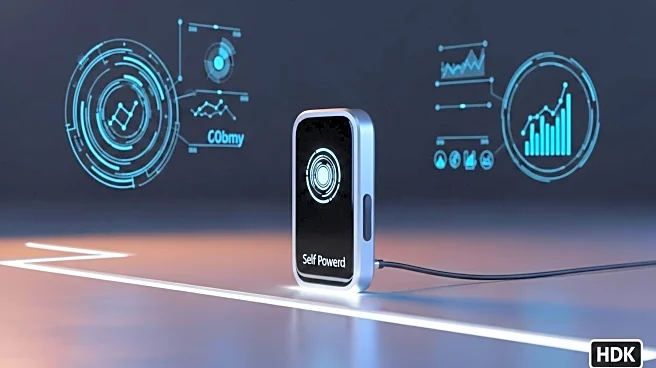What is the story about?
What's Happening?
The global market for self-powered temperature sensors is projected to experience significant growth, with an estimated increase from $252 million in 2024 to $614 million by 2031, according to a report by Global Info Research. This growth is driven by advancements in energy harvesting technology, which allows these sensors to operate without external power sources by utilizing environmental energy such as heat, light, and vibration. The report provides a comprehensive analysis of market trends, competition, and key factors influencing demand across various sectors, including industrial, energy, automotive, medical, and aerospace & defense. Major players in the market include EnOcean, Monarch Instrument, and ABB, among others.
Why It's Important?
The expansion of the self-powered temperature sensor market is significant for several industries, particularly those focused on sustainability and energy efficiency. These sensors offer a cost-effective and environmentally friendly solution by reducing the need for external power sources, which can lead to lower operational costs and reduced carbon footprints. The technology's application across diverse sectors such as automotive and aerospace highlights its versatility and potential to drive innovation in monitoring and data collection. As industries increasingly prioritize sustainability, the demand for such energy-efficient technologies is expected to rise, potentially influencing market dynamics and competitive strategies.
What's Next?
As the market for self-powered temperature sensors grows, companies are likely to invest in research and development to enhance sensor capabilities and expand their applications. This could lead to the introduction of new products and technologies that further integrate energy harvesting solutions into various industrial processes. Additionally, regulatory policies promoting energy efficiency and sustainability may accelerate the adoption of these sensors, encouraging more industries to transition towards greener technologies. Stakeholders, including manufacturers and policymakers, will need to collaborate to address challenges related to standardization and interoperability to fully realize the benefits of this technology.
Beyond the Headlines
The rise of self-powered temperature sensors also raises questions about data privacy and security, as these devices often transmit data wirelessly. Ensuring robust cybersecurity measures will be crucial to protect sensitive information and maintain user trust. Furthermore, the shift towards self-powered technologies may influence workforce dynamics, requiring new skills and expertise in energy harvesting and sensor technology. Educational institutions and training programs may need to adapt to prepare the workforce for these emerging technological demands.

















